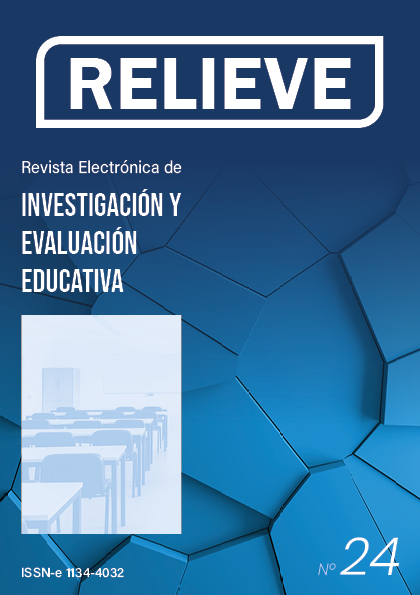Inter Professional Work in Schools: Changing Trajectories of Vulnerability to School Dropout Among Secondary Students
DOI:
https://doi.org/10.7203/relieve.24.2.13386Keywords:
school-dropout, inter professional work, vulnerable students, school leadership, psychosocial interventionsAbstract
Preventing school dropout requires interprofessional work that addresses in a coordinated
manner the multiple individual, school and structural factors that lead a young person to leave
formal schooling. This study examines the configuration of interprofessional work that is
designed and implemented in two Municipal Departments of Education in Chile to prevent the
truancy and dropout among students in secondary education from becoming a situation of
social vulnerability. Data were produced through in-depth interviews with a total of 63
individuals, including municipal-level and school level professionals, parents and students.
These two cases show contrasting models in their approaches. The first model is oriented to
offer psychosocial support so that adolescents can develop their life project. Psychologists,
social workers and teachers, under the leadership of the municipal-level coordinator and the
school principal, deploy relational agency and relational expertise to develop common
knowledge; and students feel that their needs are addressed. In the second case, the model
focuses on the prevention of truancy and school dropout. The expertise provided by
psychologists and social workers fails to expand the practices of teachers; and students point
out that psychosocial intervention is more of a barrier than a support. These results highlight
the importance of designing psychosocial supports that consider students' voices and the need
to prepare professionals for coordinated interprofessional work that aligns motivations to
work together
Downloads
Downloads
Published
How to Cite
Issue
Section
License
The authors grant non-exclusive rights of exploitation of works published to RELIEVE and consent to be distributed under the Creative Commons Attribution-Noncommercial Use 4.0 International License (CC-BY-NC 4.0), which allows third parties to use the published material whenever the authorship of the work and the source of publication is mentioned, and it is used for non-commercial purposes.
The authors can reach other additional and independent contractual agreements, for the non-exclusive distribution of the version of the work published in this journal (for example, by including it in an institutional repository or publishing it in a book), as long as it is clearly stated that the Original source of publication is this magazine.
Authors are encouraged to disseminate their work after it has been published, through the internet (for example, in institutional archives online or on its website) which can generate interesting exchanges and increase work appointments.
The fact of sending your paper to RELIEVE implies that you accept these conditions.














